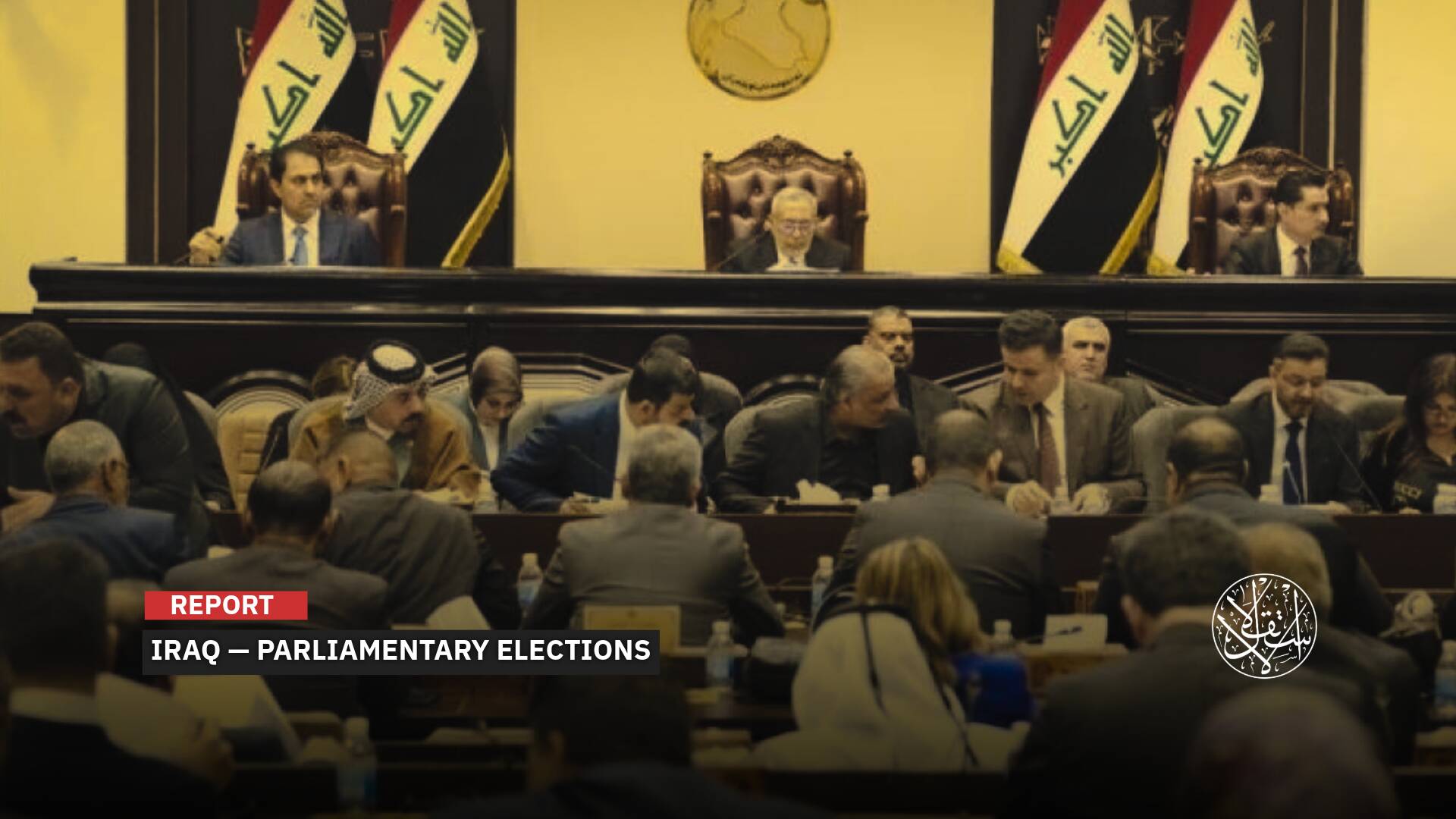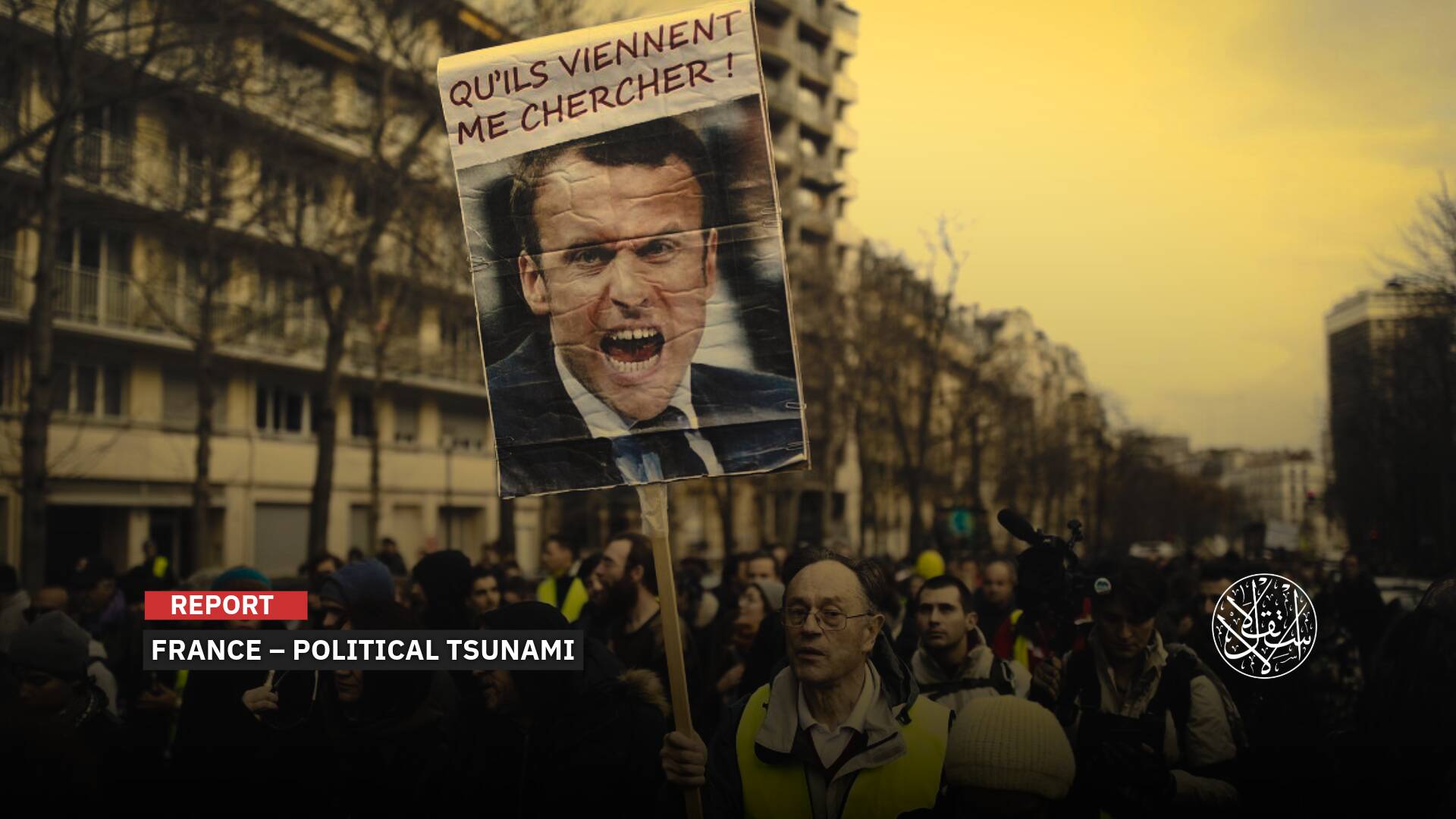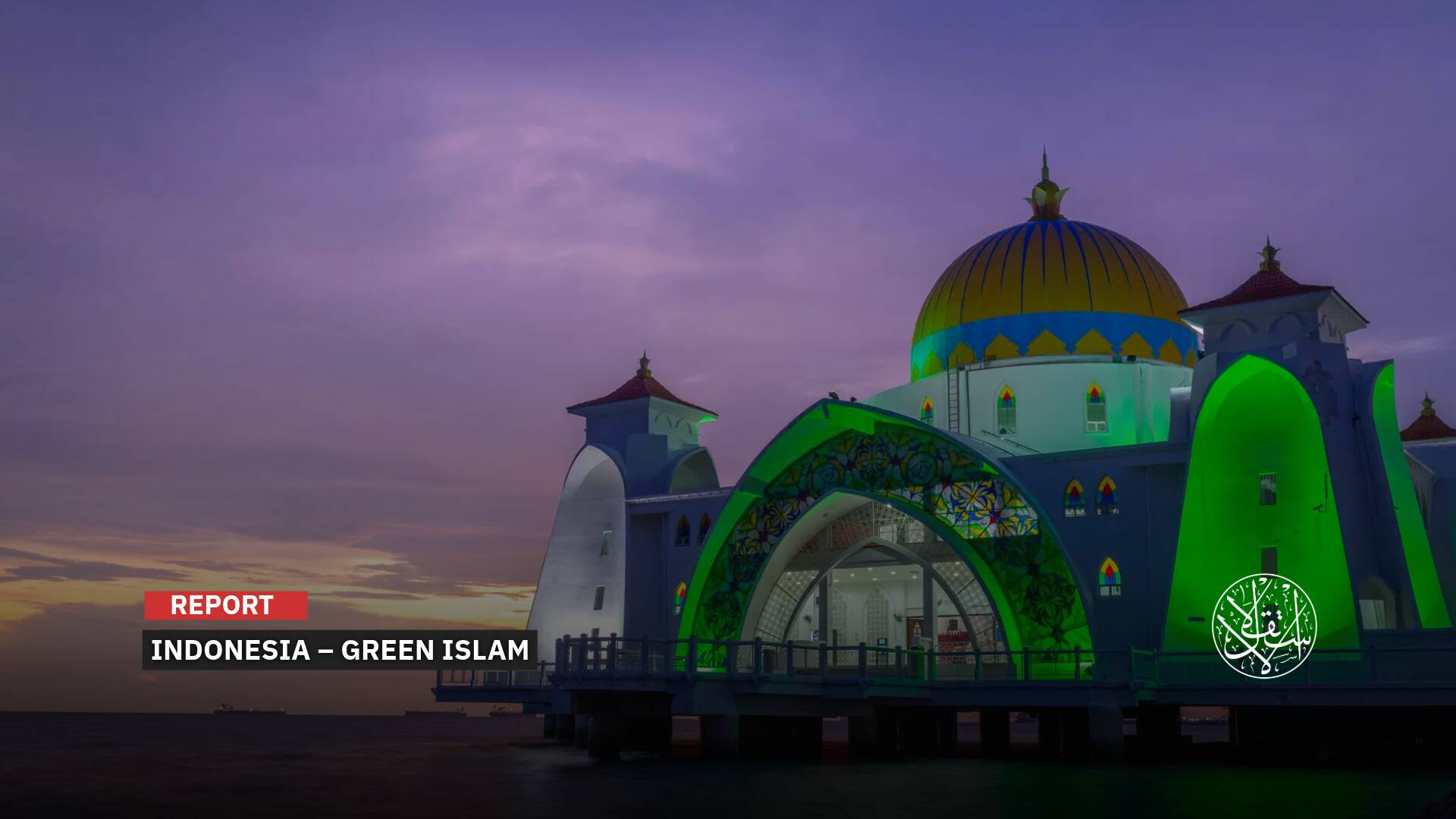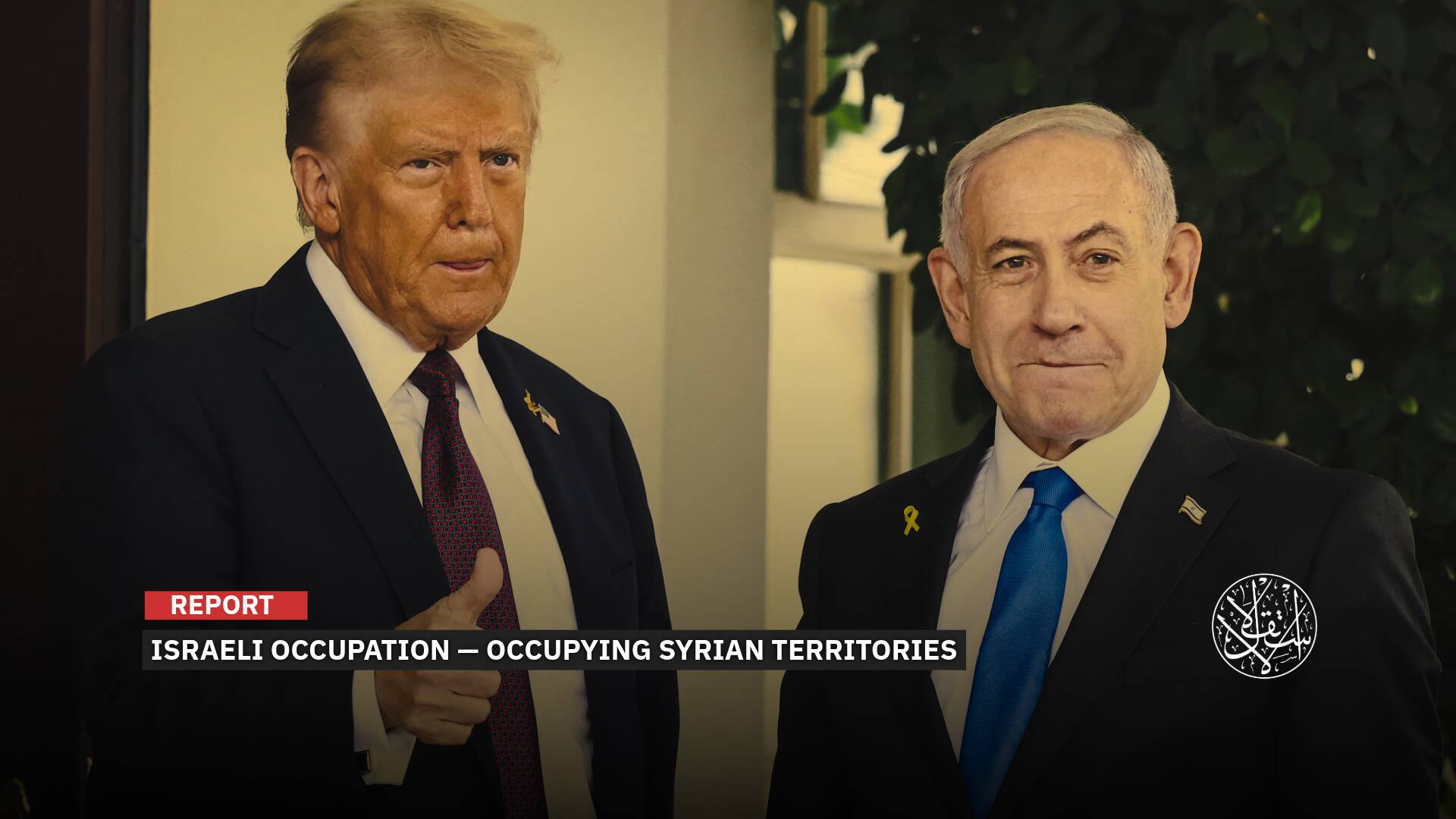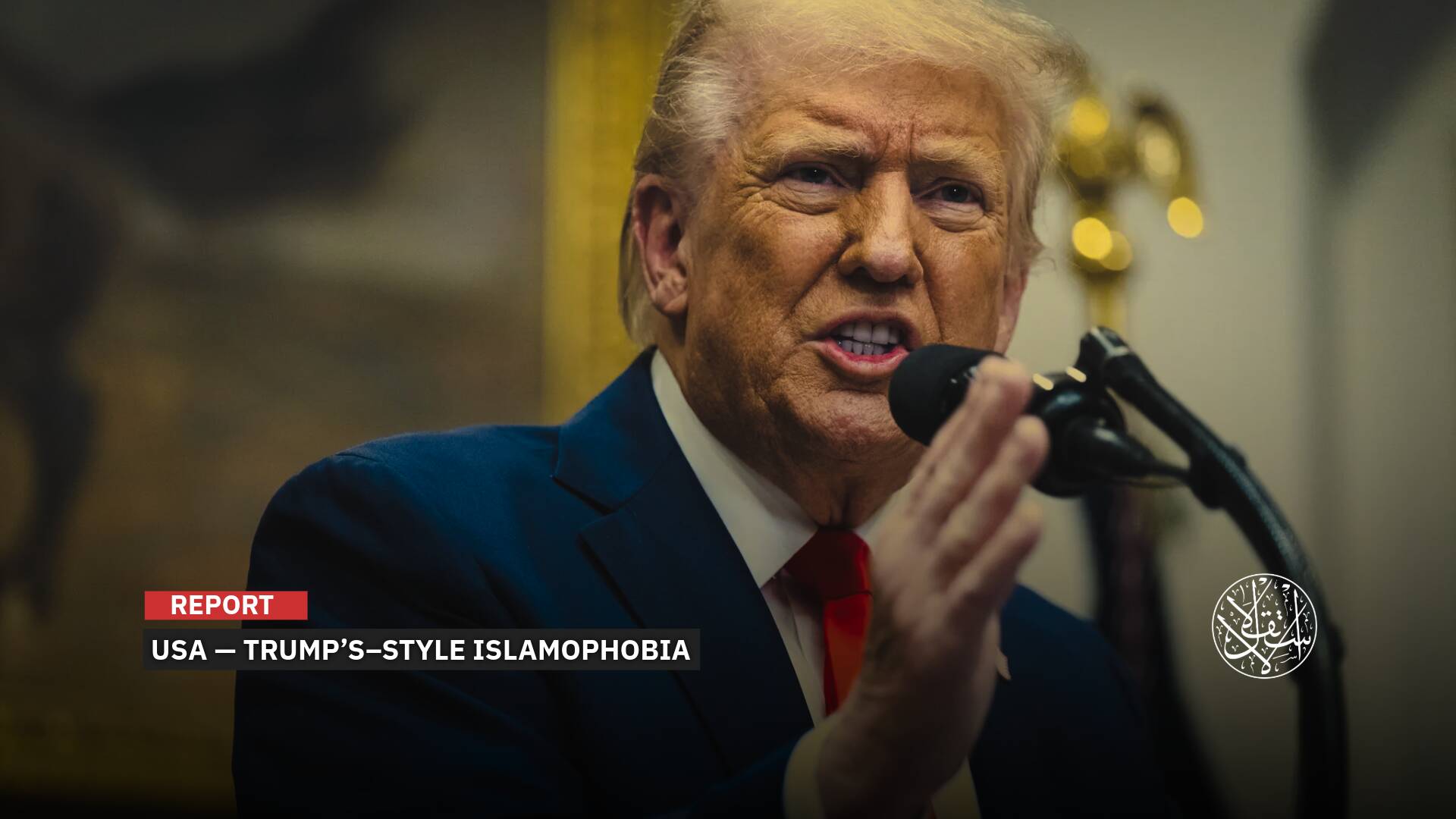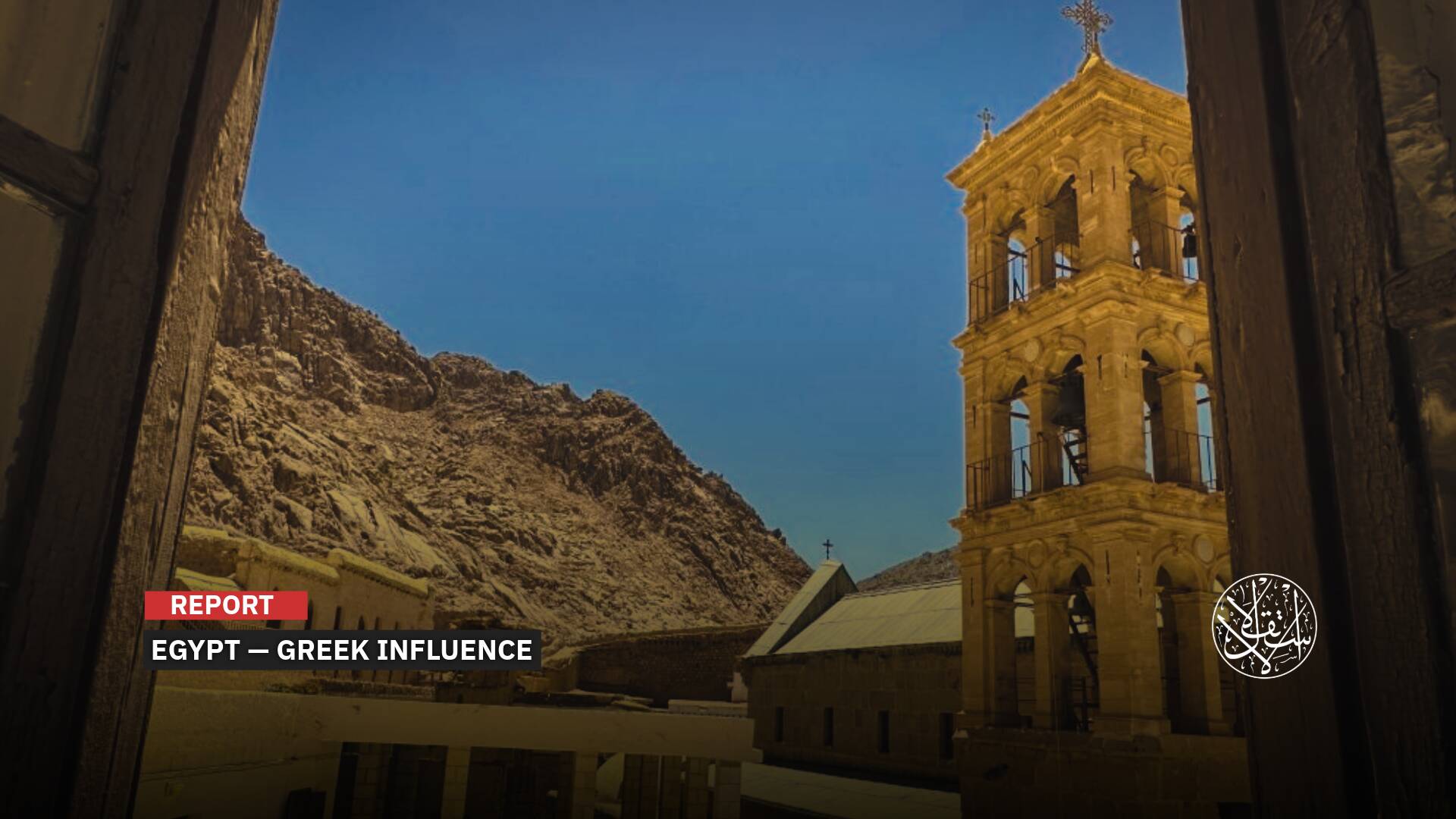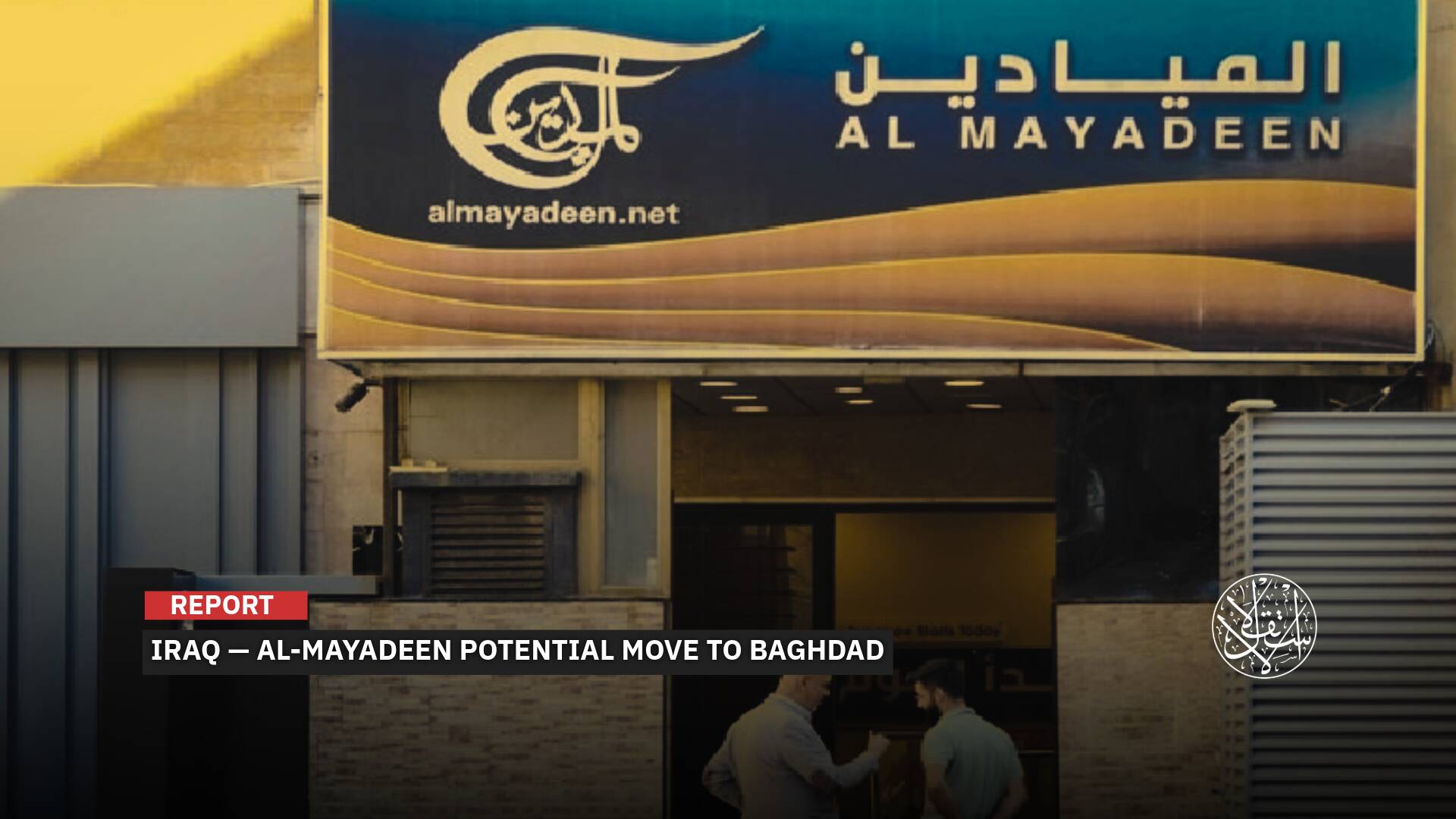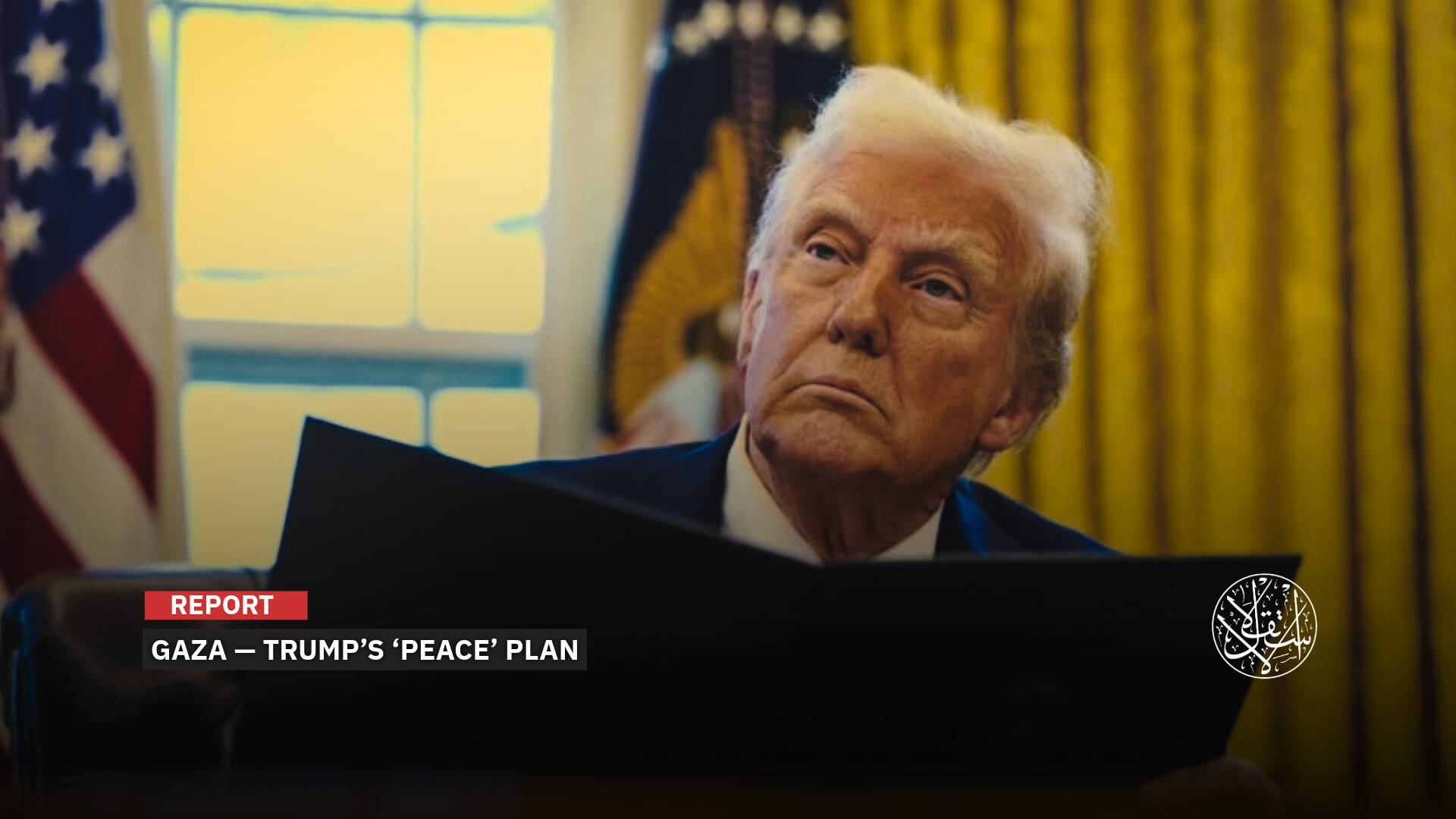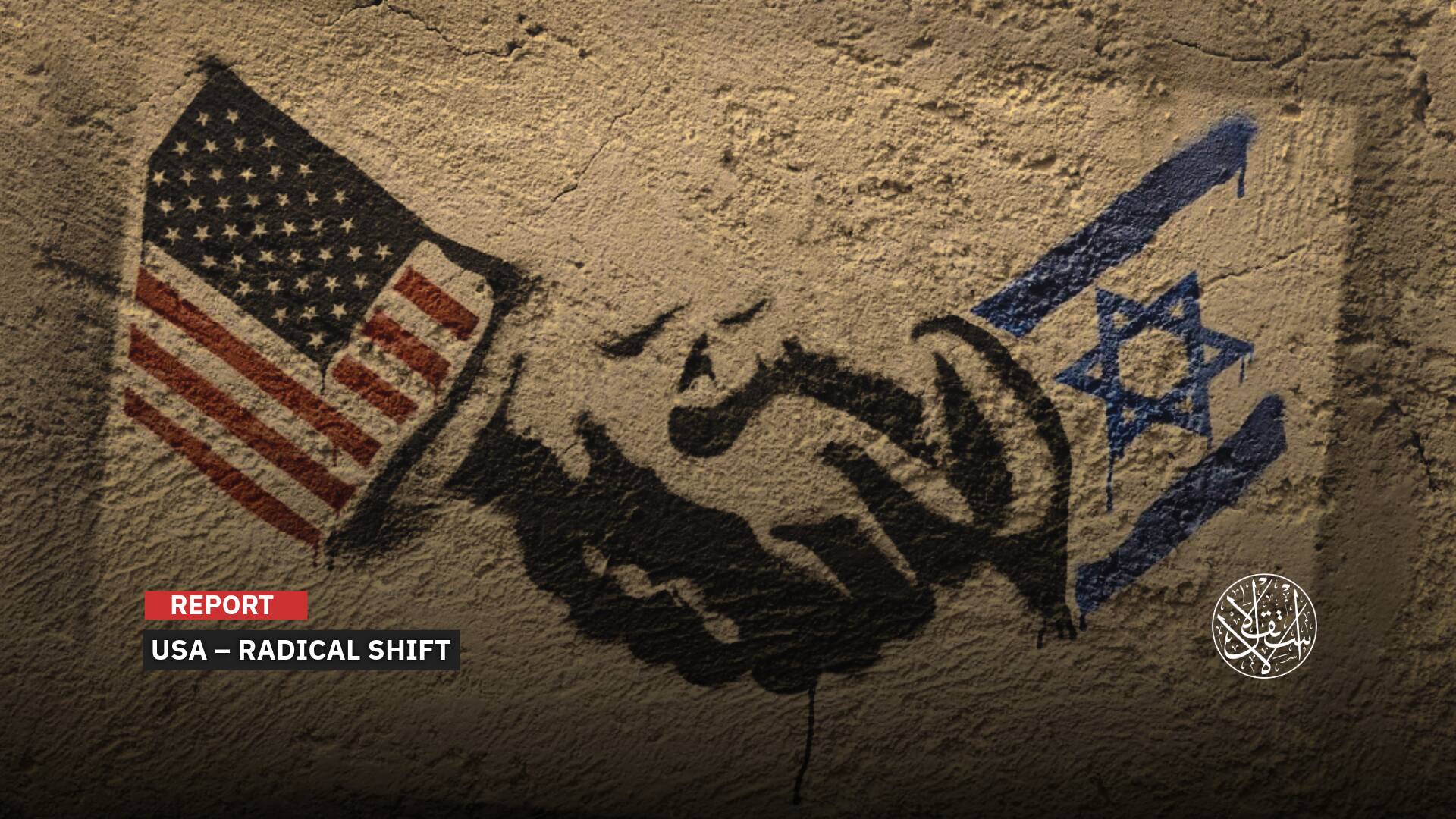After Nasrallah’s Death, Has All-Out War Begun Between Hezbollah and Israel?

It is clear that the Arab region is on the brink of radical changes.
Amid conflicting reports regarding the fate of Hezbollah's Secretary-General, Hassan Nasrallah—whether he had survived unharmed or fallen victim to an assassination attempt— The Israeli Occupation announced his death on September 28, 2024.
This claim was later confirmed by an official statement from Hezbollah, marking a pivotal moment in the region's ongoing tensions.
This uncertainty follows the loss of a key figure in the resistance, who had confounded the Israeli Occupation for 32 years, along with several other prominent leaders.
The assassination of Nasrallah is expected to end all that the party had announced regarding “strategic patience” and “rules of engagement,” pushing towards a “full-scale war,” and possibly leading to a Lebanese-Iranian dispute over conflicting interests.
Golden Intelligence
The spokesperson for the Israeli Occupation army, Avichay Adraee, officially confirmed on September 28, 2024, the “elimination” of Hassan Nasrallah, along with other leaders, including the commander of the southern front, Ali Karki.
This confirms that “Israel” targeted him, based on information described as “golden intelligence” by Channel 12, raising questions about who provided “Israel” with the “golden” information regarding Nasrallah's presence at the command center.
Hezbollah's official announcement of Nasrallah's death came out nearly 24 hours after the Israeli airstrike on the party's offices, effectively ending the speculation surrounding his fate. This revelation raises critical questions about the future: Will a full-scale war erupt, or will a muted response persist as they strive to maintain their image?
Nasrallah, who rose to leadership after “Israel” assassinated Abbas al-Musawi in 1992, has spent the past 32 years significantly expanding Hezbollah's military and political power. Under his guidance, the group has solidified its influence in the region, transforming into a formidable “thorn” on the side of the Israeli Occupation.
The Israeli army stated that “fighter jets bombed the central headquarters of Hezbollah, located underground beneath a residential building in the southern suburbs of Beirut, during a meeting of senior party leaders,” based on precise intelligence from the military and intelligence services.
Former Israeli officials told CNN that the army would not have targeted the location in Beirut without the high certainty of Hassan Nasrallah's presence there.
On September 27, 2024, Channel 12 reported that Israeli assessments indicated that Nasrallah had been killed, with the headline: “Assessment in Israel: Nasrallah has been eliminated.”
The decision to assassinate Nasrallah was made in the Israeli War Cabinet after Prime Minister Benjamin Netanyahu and War Minister Yoav Gallant authorized it on September 23, 2024, leaving the timing to be determined based on intelligence information.
Netanyahu reportedly ordered the execution of the assassination while staying at a hotel in New York, just before his speech at the United Nations General Assembly.

A Mysterious Stance
Before the official announcement of Nasrallah's death, the Iranian position remained “ambiguous and confused,” with no official confirmation or denial from Tehran regarding his condition, despite being a key ally. A senior Iranian security official told Reuters that Tehran is checking the status of Nasrallah.
Even the much-anticipated statement from Iran's Supreme Leader, Ali Khamenei, on September 28, condemned “the killing of innocent civilians in Lebanon” and stated that it “would not affect the resistance,” without addressing the fate of the Hezbollah leader.
However, Iranian officials and media have issued statements and reports indicating Nasrallah's death, along with the potential rise of new leadership within Hezbollah.
Ali Larijani, a senior advisor to the Supreme Leader and former Speaker of the Iranian Parliament, made a peculiar statement indicating that “the resistance has strong leaders and cadres; every leader who becomes a martyr will have a replacement,” implicitly suggesting that Nasrallah had been assassinated.
Former Quds Force commander General Ahmad Vahidi stated on Iranian state television, “Hezbollah has trained many leaders; every leader who becomes a martyr will have another to take their place.”
Political and military leaders in Iran discussed the targeting of Nasrallah on state television, alluding to a ready replacement for him without explicitly mentioning his assassination.
Iranian accounts also reported the deaths of Revolutionary Guard leaders alongside Nasrallah in the Israeli airstrike, indicating that the Iranians were certain of the Hezbollah leader's demise.
Iranian and American media sources reported that Nasrallah's assassination was facilitated by “Israel” tracking several Revolutionary Guard leaders who were coming from Damascus, serving as the thread that led the Israelis to the meeting location.
What Comes Next?
What happens next is the critical question. Will the strategic inertia of Iran's axis finally give way to unconventional, coordinated actions? Or will the capacity for genuine deterrence against the Israeli Occupation continue to diminish, resulting in the erosion of both Iran's axis and Hamas in Gaza, left vulnerable and unsupported?
The Arab region is on the brink of significant changes following the targeting of Nasrallah and the escalation of destruction in southern Lebanon. Analysts, both Arab and foreign, note that the use of force has become unrestricted and devoid of engagement rules.
Initial indicators suggest that Netanyahu's recklessness may escalate the region into a “comprehensive regional war” affecting multiple volatile fronts, especially following the barbaric assault on Beirut and the targeting of Nasrallah.
The lesson learned by Iran and Hezbollah is clear: their hesitation to respond decisively from the outset to the assassination of Quds Force leader Qasem Soleimani, Ismail Haniyeh in the heart of Tehran, and Saleh al-Arouri in Beirut, along with nearly ten other leaders, has contributed to Hezbollah's current predicament.
Hezbollah's policy of “strategic patience” and adherence to “engagement rules” unilaterally has left them vulnerable amid a clear Israeli intent to drag both the party and Iran into a comprehensive war involving America, thus opening the door to Israeli aggression.
Syrian political analyst Ahmed Ramadan identified what he termed “ten fatal errors” made by Hezbollah, leading to significant blows to its leadership and military structure, potentially threatening the party's longstanding role.
“Israel” has long acted like a bully, provoking Hezbollah into a fight and doing everything possible to drag the group into war. Meanwhile, Hezbollah has gone to great lengths to avoid an all-out conflict.
With “Israel” targeting Hezbollah’s headquarters and declaring their intent to assassinate Nasrallah, the rules of engagement have evaporated. Hezbollah now faces no option but to pursue total war and demonstrate its true strength.
Journalist Magdi Hussein, the currently suspended Secretary-General of the Egyptian Islamic Labor Party, asserts that “the martyrdom of Hassan Nasrallah will not change the equation or halt the resistance.
Hussein explained to Al-Estiklal that “Nasrallah's martyrdom is a sad and painful event for all supporters of resistance and the struggle for freedom from American-Zionist domination over our Arab nations. However, he has been a target of the [Israeli] Occupation for 32 years, and he knows this.”
Hussein, who has met Nasrallah several times, noted that “The assassination of resistance leaders has undeniably shown that it neither weakens the resistance nor stifles its growth or effectiveness.”
He stressed that “the momentum will continue even with Nasrallah's martyrdom," forecasting a "steady escalation of strikes from Hezbollah, as well as Iraqi and Yemeni resistance groups, possibly culminating in a sudden surge rather than a gradual one, which we anticipate in the coming hours and days.”
Hussein cited the example of the Izz ad-Din al-Qassam Brigades, which faced similar challenges and continuous assassinations but still advanced to higher levels of armament, military competence, and political leadership.
Hussein anticipated that Hezbollah and its allies would continue “the resistance without compromise with the American-Zionist enemy, pursuing their path armed with well-equipped martyr forces and a missile arsenal capable of striking all occupied Palestinian territories.”
Israeli journalist Yossi Melman echoed this sentiment, stating, “My summary of the killing of Nasrallah. Precise and excellent intel but soon he will be replaced and Hezbollah will continue launching rockets.”
“The evacuees will not return. The chance of a cease-fire settlement with Lebanon is slimmer,” he added.
American and Israeli newspapers have begun highlighting the potential successor to Nasrallah, indicating that Hashem Safieddine may take the lead due to his long tenure in the leadership structure and his close ties with Iran.
The New York Times (NYT) noted that his influence within Hezbollah extends beyond his religious role, making him a crucial figure in the political and strategic framework of the organization. It confirmed that he has built strong relationships with Iranian leadership, especially within the Revolutionary Guard, and that these connections have solidified his position within Hezbollah as a key link between the group and Iran, often operating behind the scenes.
Iranian Supreme Leader Ali Khamenei called for an emergency meeting of the Supreme National Security Council at his residence in response to the Israeli strike in Beirut targeting Nasrallah. This raised speculation about potential Iranian coordination with Hezbollah to deliver a joint strike against the Israeli Occupation, especially since the anticipated Iranian retaliation for the assassination of Ismail Haniyeh has yet to occur, according to NYT.
All-Out War?
Nasrallah's assassination signals a deeply uncertain future for the region, with major shifts on the horizon. It could lead to a full-scale war that reshapes the Arab world, or a potential Iranian compromise with America, striking deals at the expense of Arab interests and their allies in Lebanon.
“Israel is heading towards a comprehensive war and expects a conflict without any comprehensive rules. This is why Netanyahu cut short his visit to America and returned early,” Channel 12 quoting an Israeli official.
The Times of Israel quoted what it described as a “senior Israeli official” on September 28, 2024, justifying Nasrallah's assassination by saying that Israel hopes to target Hezbollah's leadership in large airstrikes on Beirut “to avoid launching a ground invasion in Lebanon.”
“It’s impossible to reverse it without a general war. That was the assumption — a general war with Hezbollah, which entails the possibility of a broader war with Iran,” he surmised.
“The other way to do it was to take him out. If you take him out, you not only neutralize that front — because nothing else will — but you also break a lynchpin. You break a central axis of the axis.”
He alleged that Iran was planning “to encircle Israel and eliminate the Jewish state by 2040. However, Hamas leader Yahya Sinwar jumped the gun by ordering the October 7 terror onslaught before other Iran proxies were ready.”
Arab analysts suggested that if Iran continues to adhere to what is termed “strategic discipline” and the rules of engagement out of fear that America may target its nuclear program, this could lead to a complete collapse of the Iranian coalition.
They indicated that “continued Iranian hesitation or failure to respond could extend to its allies in Yemen, Iraq, Syria, and Lebanon, should they perceive a weakening of Iranian deterrence and its hesitation with its most significant regional ally [Hezbollah]."
Analysts believe that “any expansion of the war would benefit Gaza, as Israel's strategy focuses on isolating the resistance there from its other allies, preventing any support from reaching them while continuing to exterminate them without reinforcements.”
Former National Security Council director Avner Golov explained the success of “Israel” against Hezbollah compared to its failures regarding Hamas, stating that Israeli security agencies are better at attacking than defending.
Golov explained that the Israeli Occupation’s usual strategy is to take the fight to the enemy, which has worked against Hezbollah. However, the situation in Gaza has been completely different, catching Israel off guard and leading to failure.
In what appears to be a warning to Hezbollah and Iran about potential retaliation following Nasrallah's death, U.S. Defense Secretary Lloyd Austin warned Friday of “devastating” consequences if “Israel” engages in an all-out war with Hezbollah, telling CNN in an exclusive interview that casualties would “equal or exceed” the number in Gaza.
“An all-out war between Lebanese, Hezbollah, and Israel would be devastating for both Lebanon and Israel. And again, we anticipate that we’d see several people displaced, casualties that, you know, equal or exceed what we’ve seen in Gaza,” Austin told CNN.
The defense secretary, reiterating the U.S. desire for a “diplomatic solution,” also said a possible ground incursion by Israeli forces into Lebanon risks spiraling the situation into a regional conflict.
The U.S. and several prominent allies believed they had achieved a 21-day pause in fighting that would give time for diplomacy and could prevent a full-fledged war from breaking out between “Israel” and Hezbollah.

U.S. Secretary of State Antony Blinken reiterated the same warning, stating that the choices made by all parties in the Middle East in the coming days will determine the path the region takes and will have profound consequences for years to come.
American observers noted that Blinken's remarks referred to “the options Iran will pursue in response to the Israeli strike and how Washington will handle future threats if Tehran insists on escalation.”
During a press conference at the United Nations General Assembly on September 27, 2024, Blinken outlined the path he believes Iran should take: “diplomacy, not conflict.”
In anticipation of the worst, the White House announced on September 27 that President Joe Biden ordered a reassessment of the deployment of U.S. forces in the Middle East as necessary following the targeting of Nasrallah and his party's leaders.
The White House statement indicated that Biden directed the Pentagon to evaluate and adjust the position of U.S. forces in the region as needed to enhance deterrence, ensure the protection of troops, and fully support U.S. objectives.
In his speech at the United Nations, coinciding with the beginning of the operation to assassinate Nasrallah, Netanyahu warned the Iranian leadership against attacking “Israel,” emphasizing that they could respond to that anywhere in Iran.
Sources
- ‘Not serious’: Blinken again urges diplomacy as Israel strikes Beirut
- Israel is crossing Tehran's red lines, adviser to Iran's supreme leader warns
- Austin believes casualties in all-out war between Israel and Hezbollah could ‘equal or exceed’ those in Gaza
- How Israel’s Spies Got Blindsided by Hamas but Still Hit Hezbollah Hard
- Hassan Nasrallah, Longtime Hezbollah Leader, Killed in Israeli Strike in Beirut
- Official: With strike on Nasrallah, Israel hopes to avoid ground-op in Lebanon


